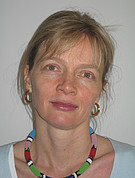24 Feb Being Born in Winter, or To A Smoker, Worsens Children’s Lung Health
MedicalResearch.com Interview with:
Dr. med. Julia Dratva, MD MPH
Medical Specialist Prevention and Public Health
FMH Scientific project
leader
MAS Versicherungsmedizin/Studienkoordinationleitung
Dept. Epidemiology and Public Health
Swiss Tropical and Public Health Institute
Socinstrasse 57, P.O. Box, 4002 Basel,
Switzerland
Medical Research: What is the background for this study? What are the main findings?
Dr. Dratva: Early childhood is a critical time window for subsequent health. Early life environment is known to be important for lung development and respiratory health. Little is known on the potential impact on lung ageing and the potential mechanisms responsible for the long-term impact. We investigated early childhood factors and their association with lung function decline, a common marker of lung aging, in two long-standing adult cohorts, SAPALDIA and ECRHS. As recently published in scientific journal PlosONE, maternal smoking, early respiratory infections or season of birth are associated with a faster decline in lung function decline, while less rapid decline was found in persons who had attended daycare. The early exposures may not only have an independent adverse effect on lung aging but also increase the respiratory vulnerability to other adult risk factors. Stronger effects were observed in in smokers exposed to the aforementioned adverse factors.
Medical Research: What should clinicians and patients take away from your report?
Dr. Dratva: Our results confirmed the hypothesis of a long-term respiratory health impact and early life programming of lung ageing. This knowledge of early predisposing factors of health allows identifying patients at increased risk for a disease or risk factors, such as smoking. This may help in guiding patients and preventing disease aggravation. The results also provide evidence for establishing prevention guidelines for early life environments.
Medical Research: What recommendations do you have for future research as a result of this study?
Dr. Dratva: While there are good hypotheses on the potential mechanisms and some evidence of early life factors and aging, we need to understand better how early life factors impact on health and aging. More research is needed to identify risks, mechanisms and relevant time windows of exposure.
Medical Research: Is there anything else you would like to add?
Dr. Dratva: Our research looks into avoidable risks and protective factors that come to play early on, in childhood, in-utero, some even before conception. Identifying avoidable risks is the key to prevention. Some people may be more vulnerable than others and health systems and policies need to adapt to the vulnerable populations. We have limited resources for cure and treatment; we need to invest in prevention and its research.
Citation:
PLoS One. 2016 Jan 26;11(1):e0145127. doi: 10.1371/journal.pone.0145127. eCollection 2016.
Dr. med. Julia Dratva, MD MPH (2016). Being Born in Winter, or To A Smoker, Worsens Children’s Lung Health
Last Updated on February 24, 2016 by Marie Benz MD FAAD

